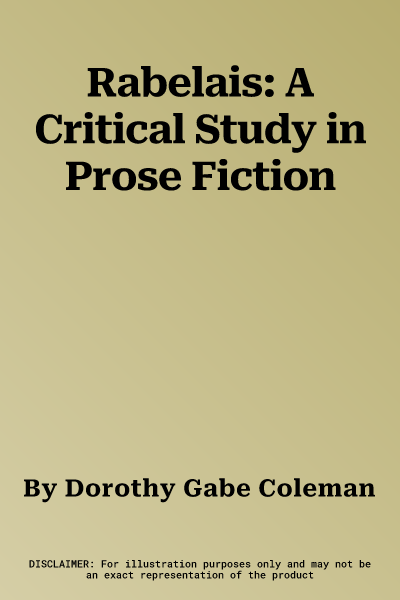Dorothy Gabe Coleman
(Author)Rabelais: A Critical Study in Prose FictionHardcover, 24 September 1971

Temporarily out of stock
Free Delivery
Cash on Delivery
15 Days
Free Returns
Secure Checkout

Part of Series
Major European Authors
Print Length
242 pages
Language
English
Publisher
Cambridge University Press
Date Published
24 Sep 1971
ISBN-10
0521081254
ISBN-13
9780521081252
Description
Product Details
Author:
Book Format:
Hardcover
Date Published:
24 September 1971
ISBN-10:
0521081254
ISBN-13:
9780521081252
Language:
English
Location:
Cambridge
Pages:
242
Publisher:
Series: